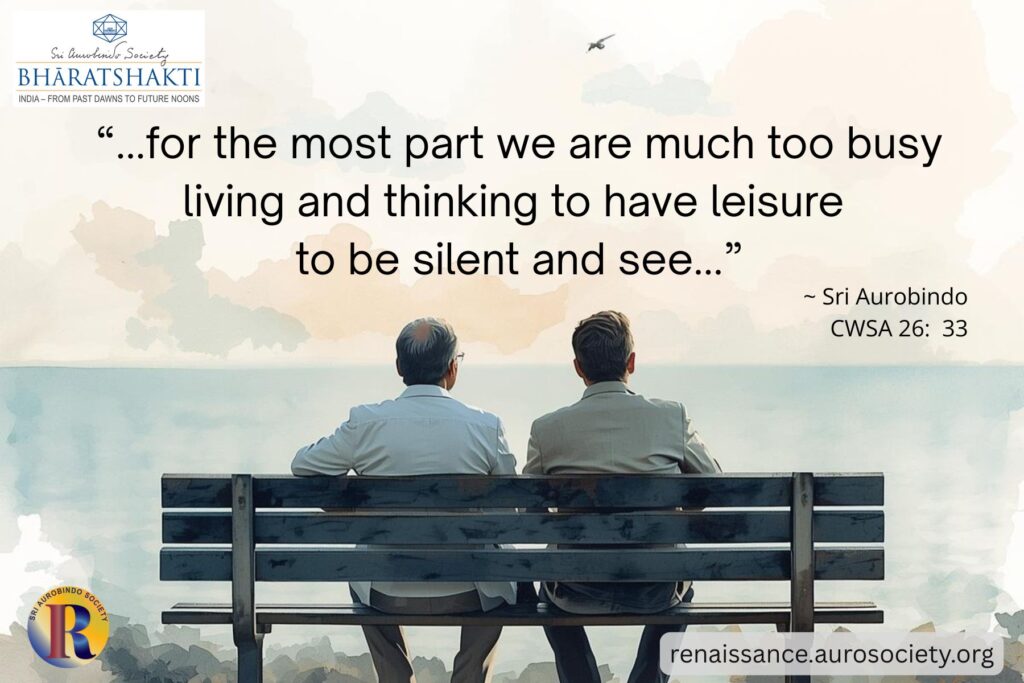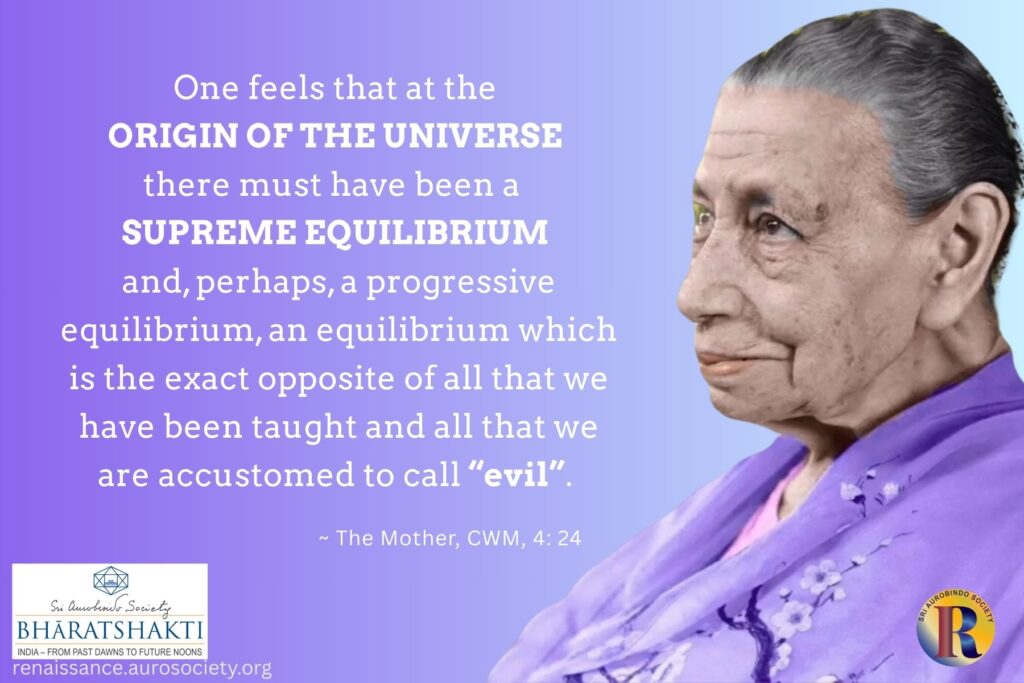Editor’s note: Integral Yoga is not a yoga for mere individual transformation. It is equally, if not more, concerned with the transformation of collective life. Featured here is some highly practical guidance the Mother gave to the sadhaks about the right attitude necessary for sincerely practicing the yoga of works in a collective setting. One can also find in these words pearls of highest wisdom which if implemented sincerely will make any workplace more harmonious and effective.

Stay focused on present and work silently
For work the present is the most important thing: the past must not come in the way and the future must not pull you away.
* * *
Your work can never be good if you go on thinking of the next thing. For work, it is the present that is most important.
The past should not drag you behind, the future should not pull you forward. You must be fully concentrated on the present, on what you are doing. You must be so concentrated on what you are doing that it is as if the salvation of the whole world depended only upon your work.
* * *
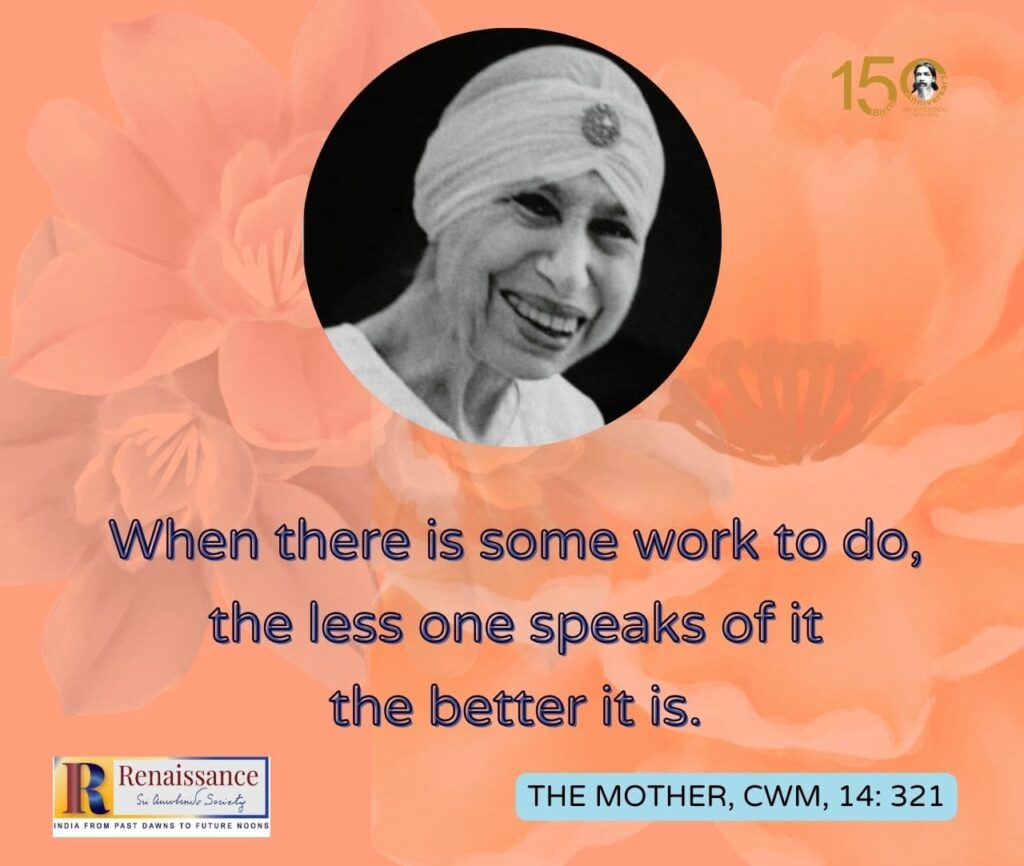
Unless you work hard you do not get energy, because in that case you do not need it and do not deserve it. You get energy only when you make use of it. [. . .]
* * *
For the sake of sadhana and for the sake of work, it is always better to work silently.
* * *
When there is some work to do, the less one speaks of it the better it is.
Collaboration and Harmony in Work
. . . It is in the attitude in the work, especially in the relation with the other workers, that the change must take place. Each one sees the work in his own way and believes it is the only true way, the only way that expresses the Divine Will. But none of these ways is completely true; it is only by rising above these divided conceptions that one can reach a better understanding of the Divine’s Will. This means mutual understanding and collaboration instead of opposition and clash of wills and feelings.
* * *
For harmony and better work, it is not by changing men that things can get better, but by changing one’s own consciousness and character.
* * *
As a general rule it is better not to intervene in things that do not fall within one’s own work.
* * *
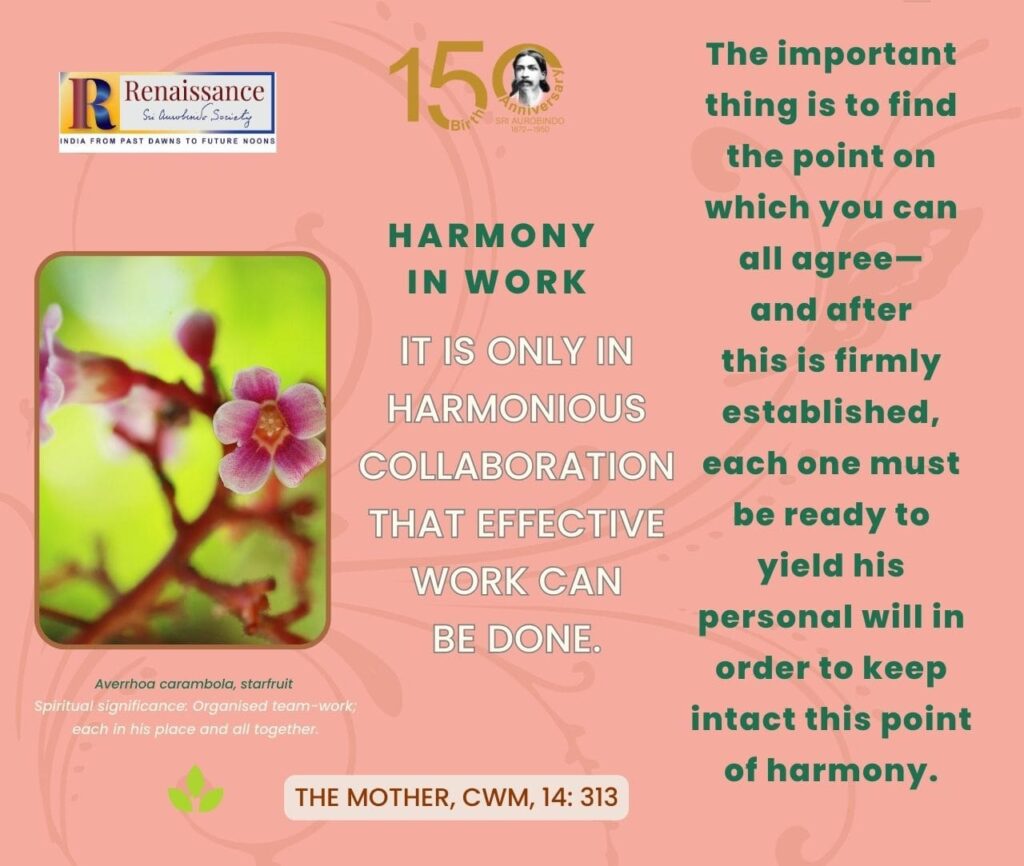
If in the work you meet with some difficulties, look sincerely into yourself and there you will discover their origin.
* * *
The difficulties in work come not from circumstances or petty outer occurrences, they come from something which is wrong in the inner attitude, especially in the vital attitude: egoism, ambition, fixity of mental conceptions regarding work, vanity, etc. And it is always good, in order to correct the disharmony, to look for the cause in oneself rather than in others.
* * *
To recognise the presence of a “disharmonious atmosphere” is useful only so far as it wakes in each one the will to change it into a harmonious atmosphere and to do that the first important step is for each one to get out of his own limited point of view in order to understand the point of view of others. It is more important for each one to find the mistake in himself than to insist on the mistake of others.
I add that all those to whom I have given responsibility in the work are expected to be faithful to this responsibility and, without allowing of any “hurt feeling” to creep in, do their best to carry on successfully their duty. [. . .]
* * *
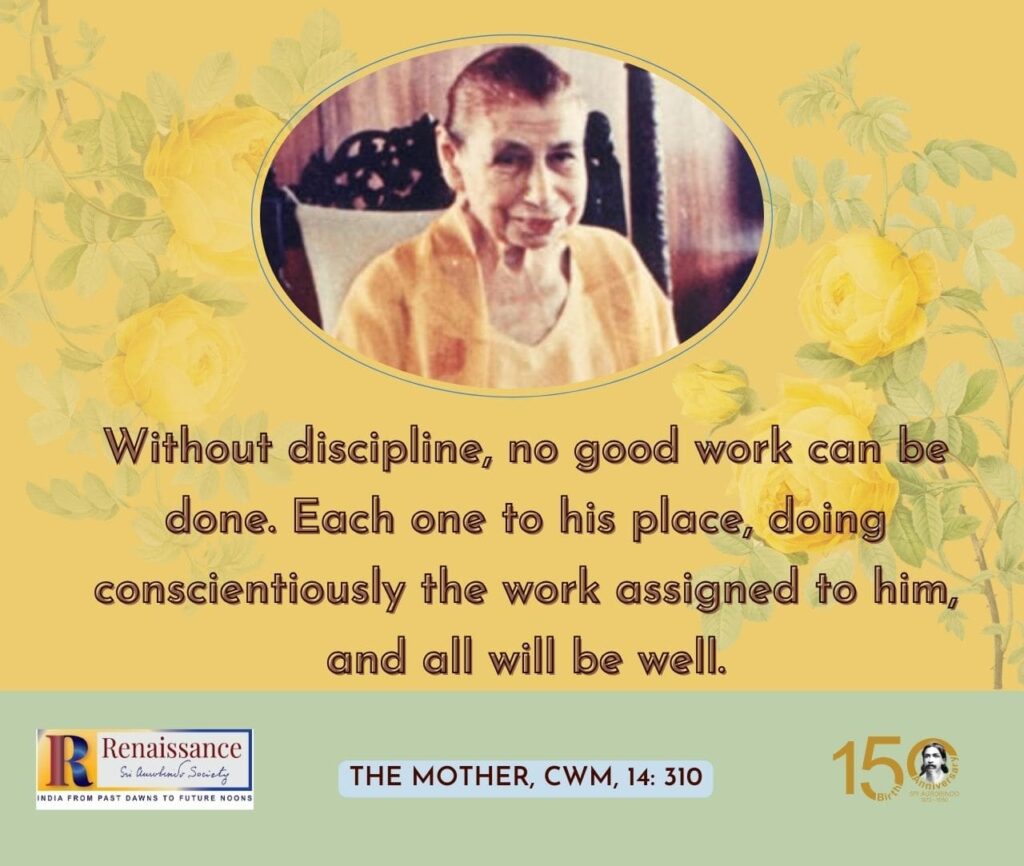
When one has work to do for a community, to take a decision for personal motives and to abandon one’s work is a serious mistake.
You mention faults committed which cannot be corrected: this is wrong. Any fault can be corrected if you sincerely set to work to correct yourself. To run away from the progress to be made is an act of cowardice and I cannot approve of it.
First of all make a sincere and complete confession of faults committed. Afterwards I shall see what is to be done.
* * *
Collaboration and reciprocal goodwill are indispensable for good work. [. . .]
* * *
It is only in harmonious collaboration that effective work can be done.
The important thing is to find the point on which you can all agree—and after this is firmly established, each one must be ready to yield his personal will in order to keep intact this point of harmony.
* * *
When we have to work collectively, it is always better to insist, in our thoughts, feelings and actions, on the points of agreement rather than on the points of divergence.
We must give importance to the things that unite and ignore, as much as possible, those that separate.
Even when physically the lines of work differ, the union can remain intact and constant if we keep always in mind the essential points and principles which unite, and the Divine Goal, the Realisation which must be the one unchanging object of our aspiration and works.
* * *
If anyone were capable of seeing the welfare of the work quite independent of his preferences and without turning everything into a personal question, then most of the difficulties would be solved.
* * *
If people could stop speaking of the work as their work it would put an end to a lot of trouble. Here, all work is the Divine’s.
No Hankering for Titles and Positions
I do not give positions to the sadhaks―I give them work; and to all I give an equal opportunity. It is those who prove to be most capable and most sincere, honest and faithful that have the biggest amount of work and the greatest responsibility.
Whatever the external circumstances, they are, without exception, the objective projection of what is inside yourself. When in your work you find something giving trouble outside, look within and you will find in yourself the corresponding difficulty.
Change yourself and the circumstances will change.
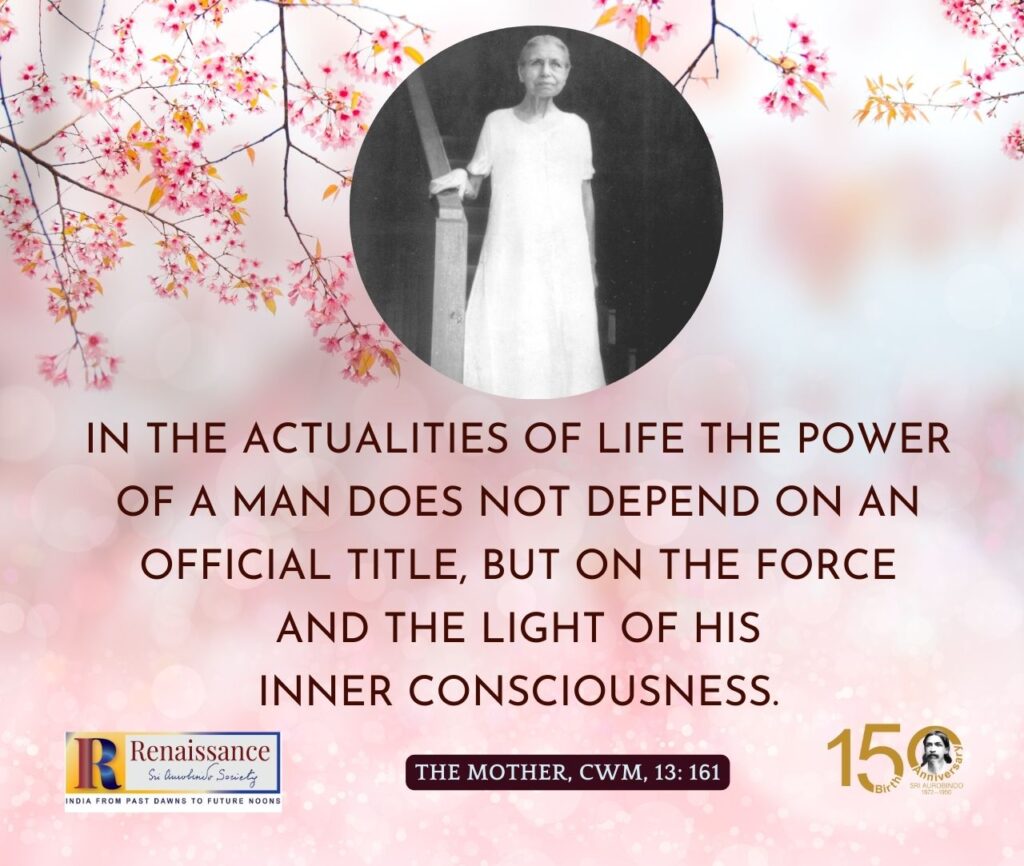
Here nobody can be an exclusive head―everyone must learn to collaborate. It is a very good discipline for vanity, self-conceit and the excessive sense of personal importance.
Working for the Mother in Harmony
When I give work to someone it is not only for the sake of the work but also as the best means to advance on the path of Yoga. When I gave you this work, I was quite aware of your difficulties and shortcomings, but at the same time I knew that if you opened yourself to my help and force you would be able to surmount these obstacles and at the same time to increase your consciousness and open yourself to the Divine’s Grace.
Now it is time for you to make a real progress and to check your outbursts of temper whenever your will is contradicted. If you want to please me―and I have no doubt of that―you will sincerely try to collaborate with X and to carry on with him the work.
I do not want anyone of you two to be the boss of the other―I want you both to feel as brothers, children of the same Mother, working sincerely and courageously for the sake of her love.
I hope you will agree to this and I assure you that my love and blessings will always be with you in this endeavour.
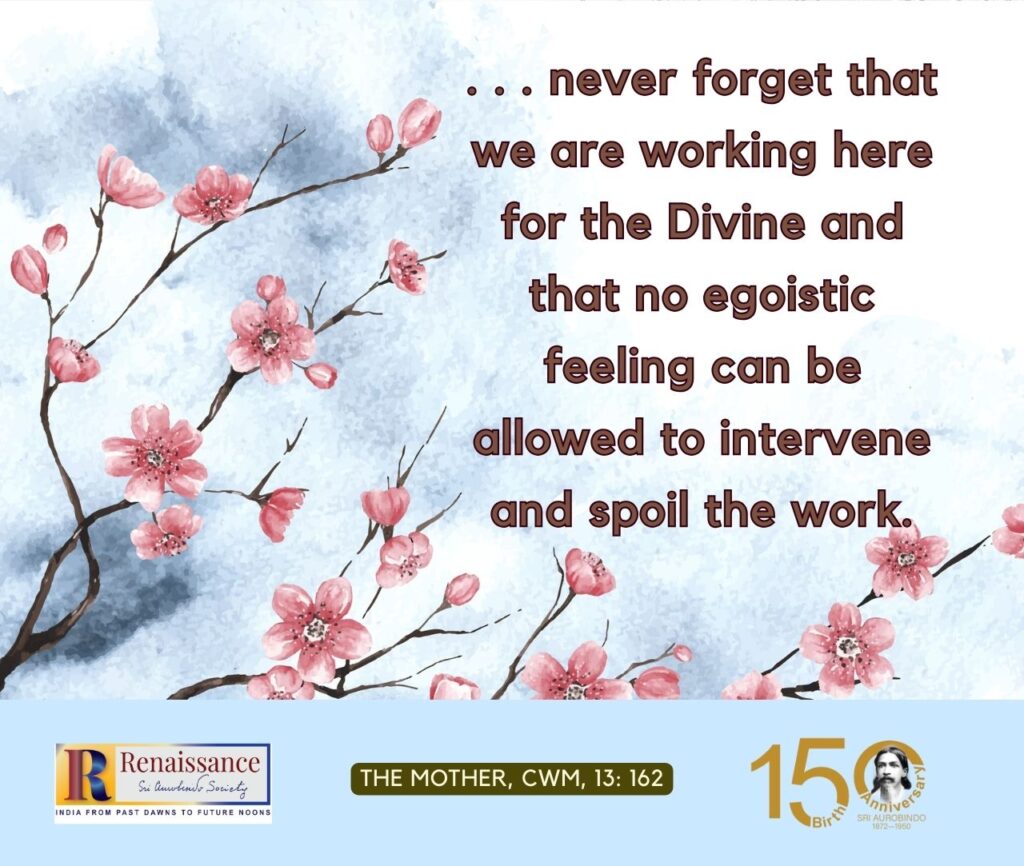
Read:
The Spirit of Karma Yoga in Sri Aurobindo Ashram
Discipline
Without discipline no proper work is possible.
Without discipline no proper life is possible.
And above all, without discipline no Sadhana is possible.
Each department has necessarily a discipline and you must follow the discipline of your department.
Personal feelings, grudges and misunderstandings must never interfere with the work which is done as a service to the Divine and not for human interests.
Your service to the Divine must be scrupulously honest, disinterested and unselfish, otherwise it has no value.
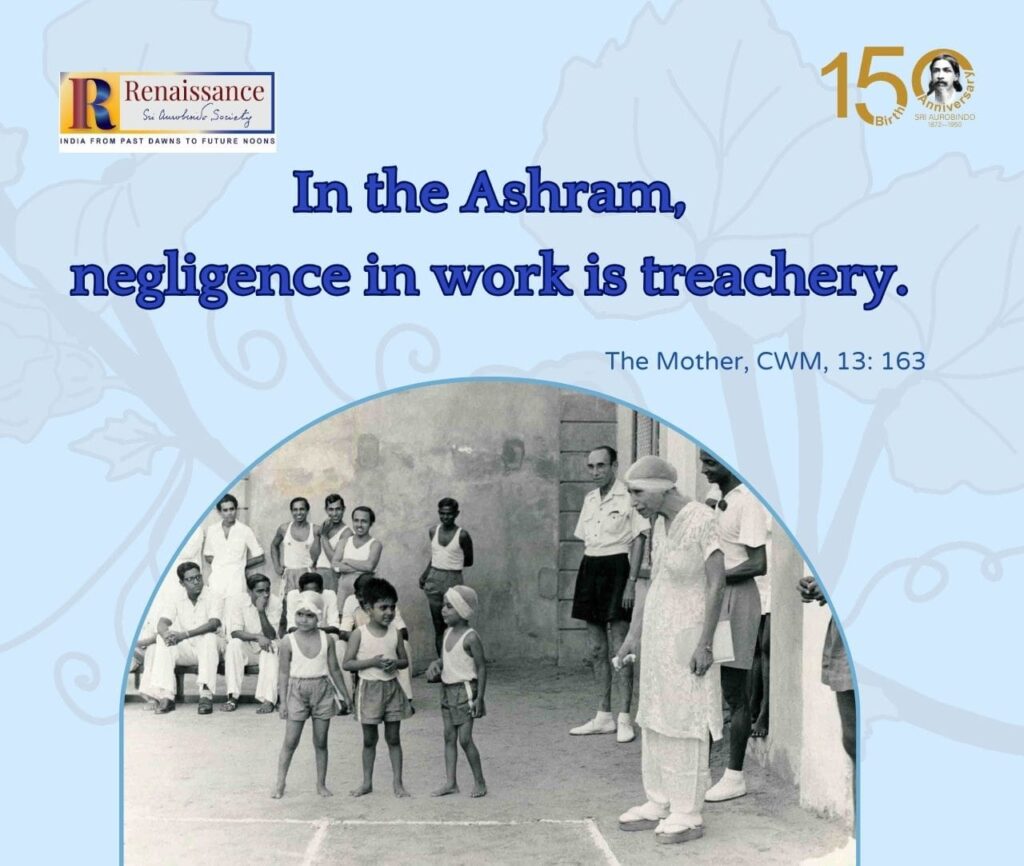
A community life must necessarily have a discipline in order that the weaker may not be maltreated by the stronger; and this discipline ought to be respected by all those who wish to live in that community.
But for the community to be happy it is necessary that this discipline should be determined by someone or by those who have the greatest broadness of mind and, if possible, by him or by those who are conscious of the Divine Presence and are surrendered to that.
For the earth to be happy, power should be in the hands of those alone who are conscious of the Divine Will. But this is impossible at the moment because the number of those who are truly conscious of the Divine Will is negligible and these have necessarily no ambition.
To tell the truth, when the hour comes for this realisation, this will come about quite naturally.
The duty of each one is to prepare oneself for that as completely as one can.
The Employer’s Pledge to the Employee
Nothing lasting can be established without a basis of trust. And this trust must be mutual.
You must be convinced that it is not only my good that I am aiming at, but also yours. And on my side I must know and feel that you are here not merely to profit but also to serve.
There is no welfare of the whole without the welfare of each part. There is no harmonious growth of the whole without the progress of each one of its parts.
If you feel you are being exploited, I also will feel that you are trying to exploit me. And if you fear you are being deceived, I also will feel that you are trying to deceive me.
It is only in straightforwardness, sincerity and confidence that human society can progress.
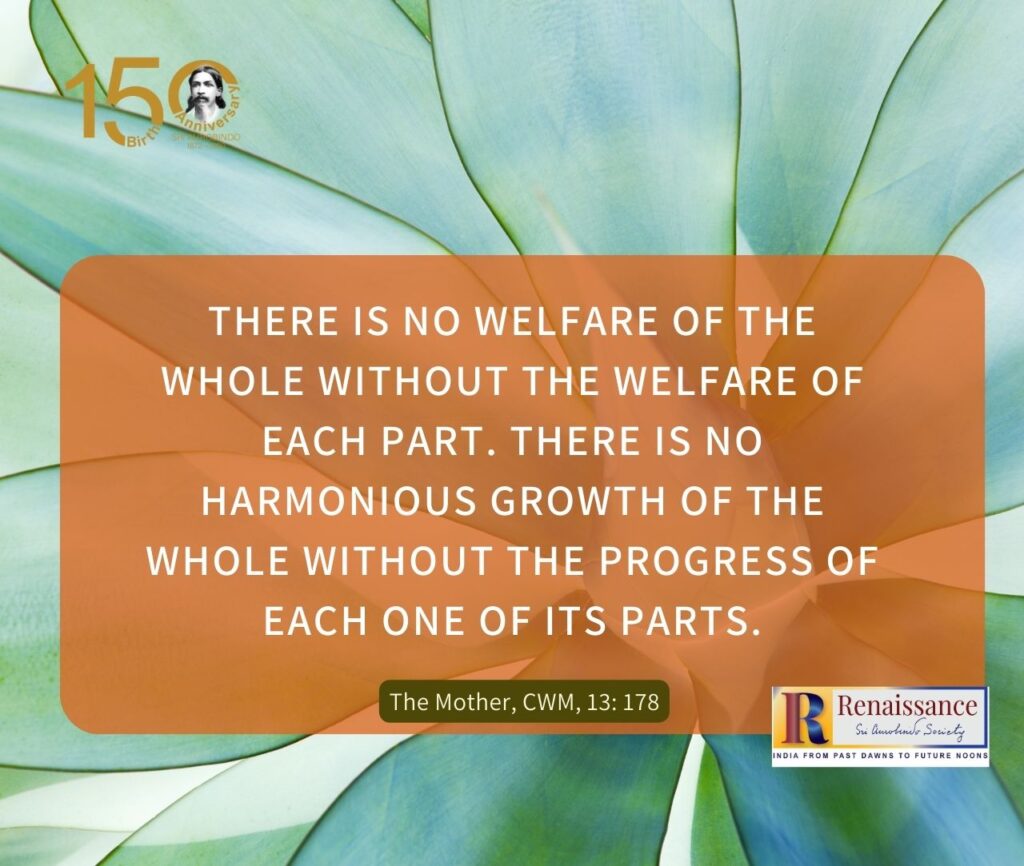
Interacting with servants
You should be very polite with those who depend upon you for their living. If you ill-treat them, they feel very much but cannot reply to you as man to man for fear of losing their job.
There may be some dignity in being rough with your superiors, but with those who depend on you, the true dignity is to be very courteous.

~ Design: Beloo Mehra


